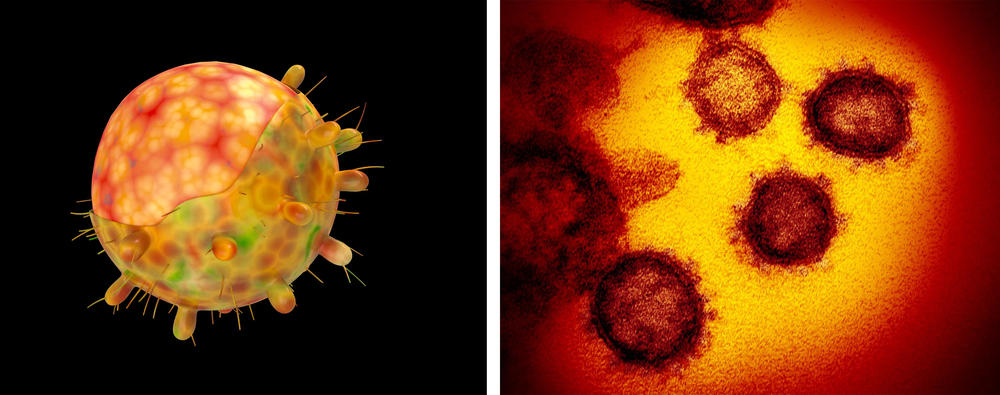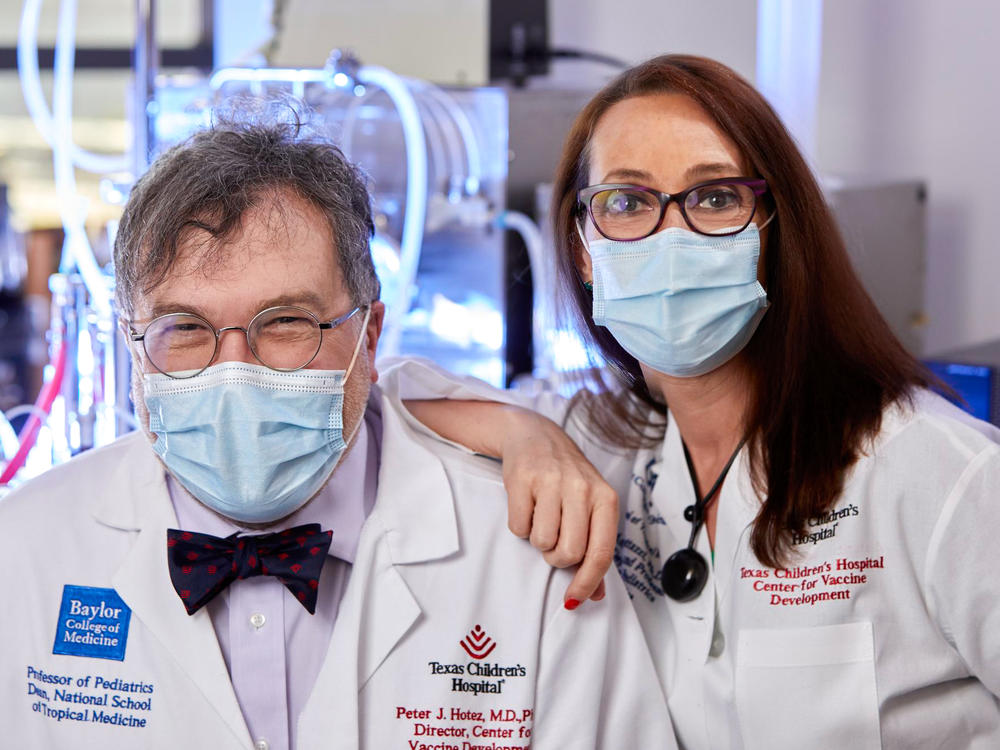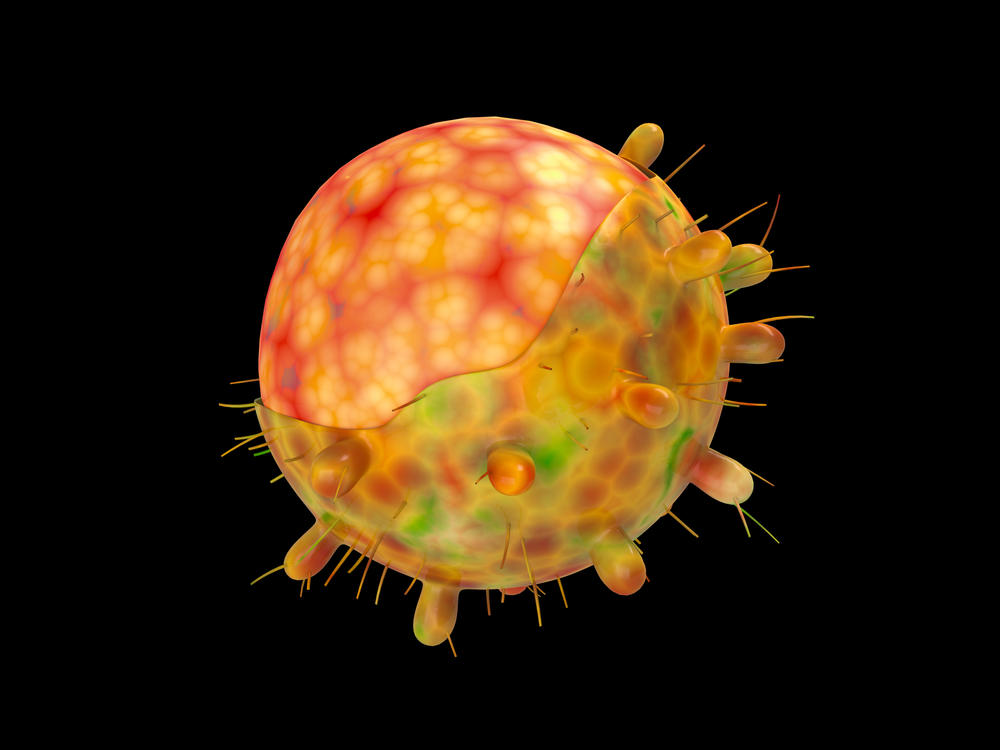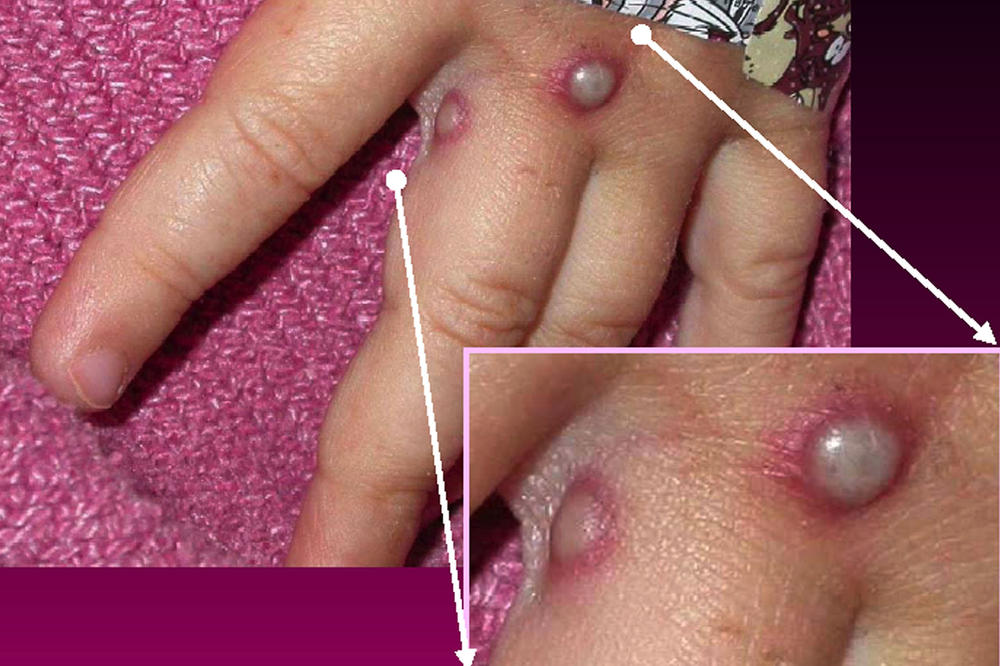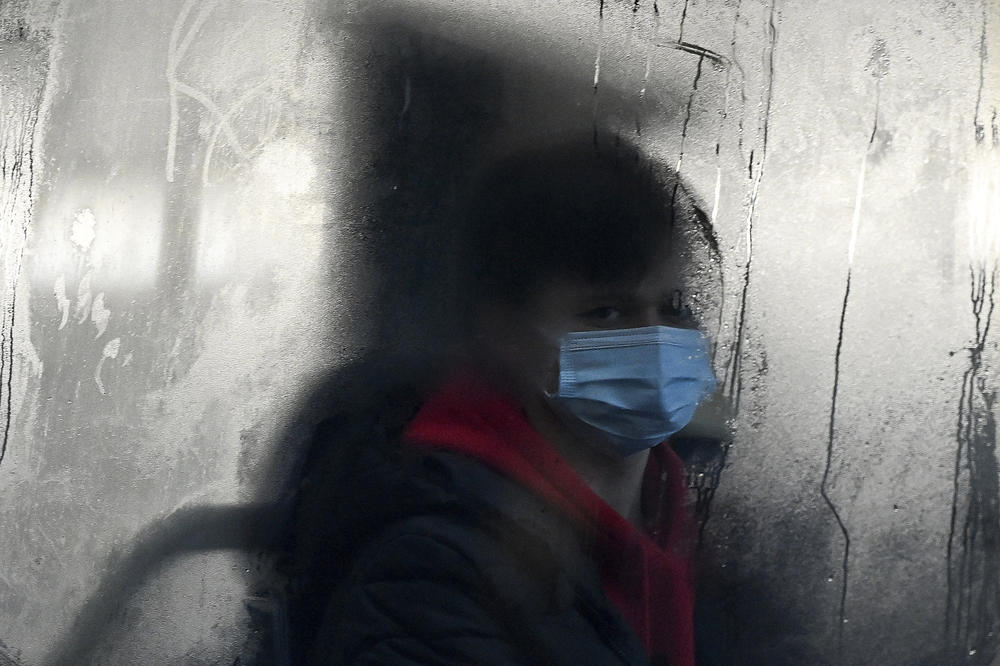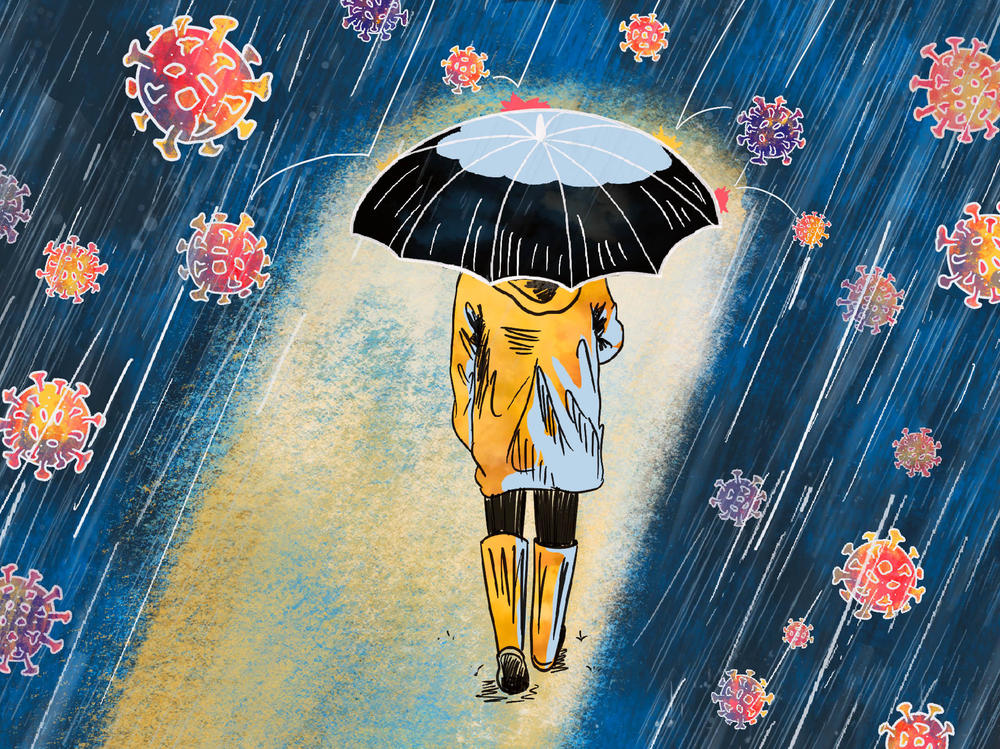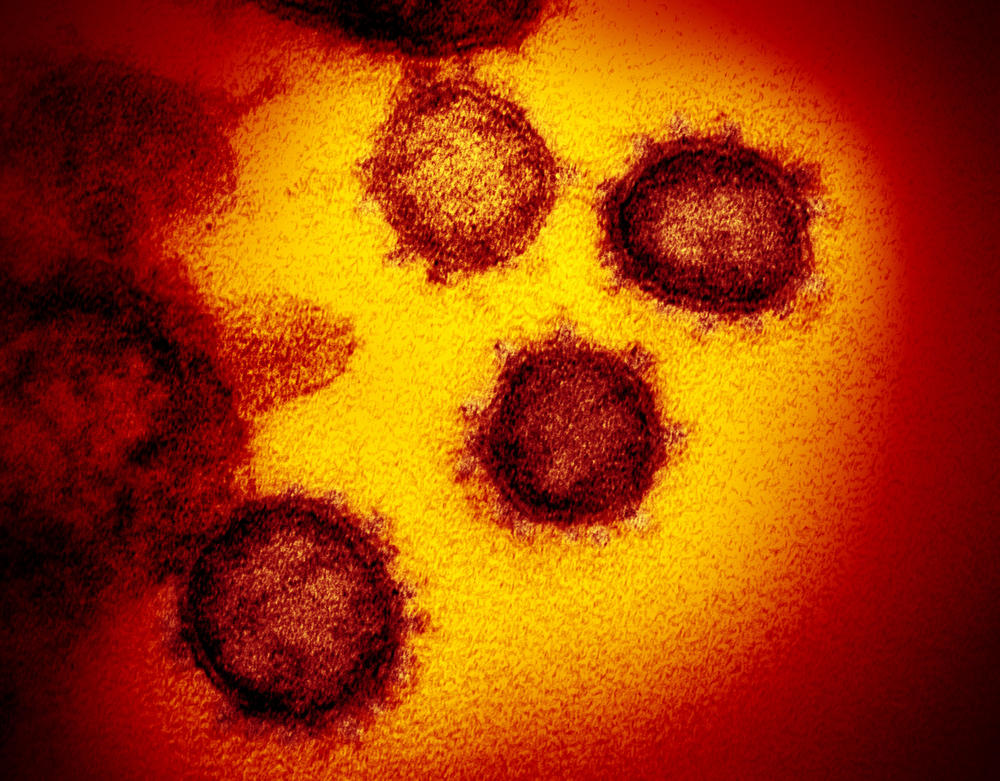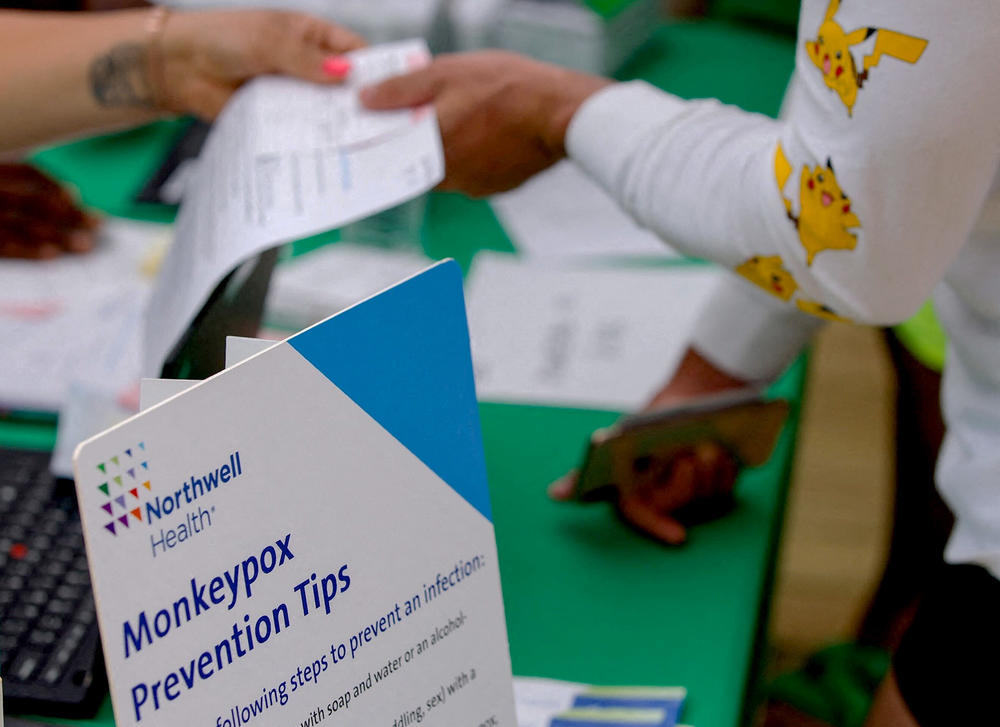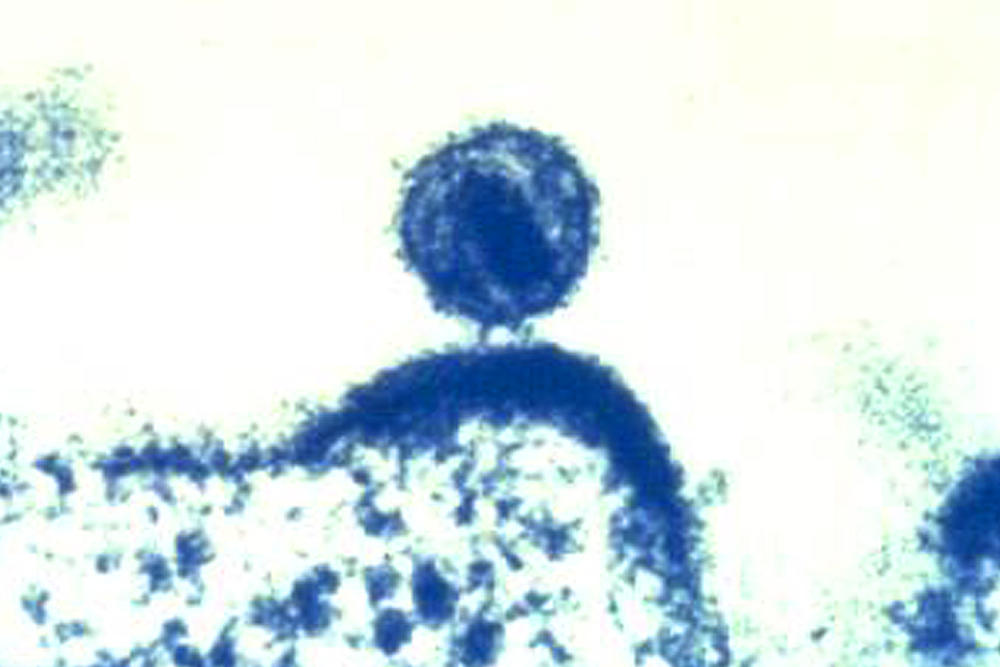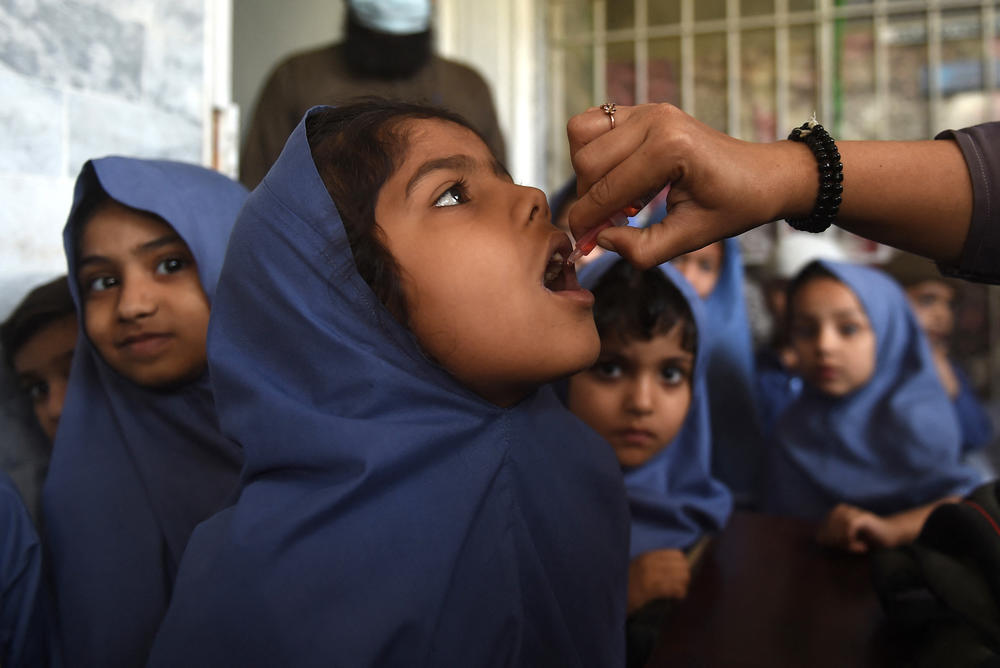Section Branding
Header Content
From COVID to mpox to polio: Our 9 most-read 'viral' stories in 2022
Primary Content
Even though the public's interest in the pandemic began to wane in its third year, COVID still grabbed the top spots for our most-read stories. But this year it had to share the spotlight with other viruses — notably mpox, HIV and polio.
With COVID, we spent the early part of the year scrutinizing the omicron variant. How bad is it? How immune are we? Why does it have a sibling? And we wondered about vaccines, not just here, but around the world. And why is there this strange subset of people who never seem to get COVID?
But just as we were all wrapping our minds around COVID variants, and feeling pretty good about the ideas that viruses might weaken over time and could even be behind us, we were surprised by a more contagious and severe HIV variant as well as global outbreaks of vaccine-derived polio, including cases in New York.
And scientists reminded us not to underestimate viruses.
Finally, a serious global outbreak of mpox came on so suddenly that President Biden declared a public health emergency in the U.S.
Keeping up with viruses in 2022 was like a game of Whac-A-Mole — as soon as you felt you had one figured out another would pop up, only to be followed by a variant of the first one.
Ranked here in order of popularity are the infectious-disease stories you most wanted to read from us in 2022. We hope we answered your most pressing questions!
A Texas team comes up with a COVID vaccine that could be a global game changer
Peter Hotez and Maria Elena Bottazzi used an oldie-but-goodie technology to devise a vaccine that's easy to make — and relatively cheap. Then they made their recipe available to all countries. Published January 5, 2022.
A second version of omicron is spreading. Here's why scientists are on alert
It's a sibling of the first omicron variant that swept the world. Is it more contagious? Does it cause severe disease? Will it keep current omicron surges going? Researchers are looking for answers. Published January 27, 2022.
Rare monkeypox outbreak in U.K., Europe and U.S.: What is it and should we worry?
The cases point to possible sexual transmission of this cousin of smallpox — a previously unknown method of spread for monkeypox. Published May 18, 2022.
What we know about the symptoms — and the severity — of the omicron variant
Researchers are looking at data from U.S. cases to determine if the variant causes milder disease. Even if the answer is yes, they say, rates of hospitalization could be high during the surge. Published January 6, 2022.
So you haven't caught COVID yet. Does that mean you're a superdodger?
A new study suggests that, yes, there are superdodgers. But explaining why they've been able to avoid the virus is a bit complicated. Published September 7, 2022.
The future of the pandemic is looking clearer as we learn more about infection
Scientists are beginning to come up with answers to the question of how long antibodies from an infection can protect you — and what they'll protect you from. Published February 7, 2022.
Monkeypox: The myths, misconceptions — and facts — about how you catch it
Is it a sexually transmitted disease? Can you get it on a crowded bus? Trying on clothes? We talk to specialists about how this virus is transmitted and what kinds of precautions are warranted. Published August 5, 2022.
Discovery of HIV variant shows virus can evolve to be more severe — and contagious
Findings from a new study help answer questions about why some people get more severe and transmissible HIV than others — and serve as a reminder that viruses don't always weaken over time. Published February 4, 2022.
How the U.S. case might tie into the global upswing in polio
Countries in Africa, the Middle East and parts of Asia are counting more cases of vaccine-derived polio. Now there's a likely U.S. case. Researchers are looking for ways to stop it. Published April 26, 2022.
Copyright 2022 NPR. To see more, visit https://www.npr.org.
